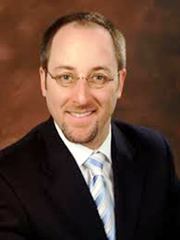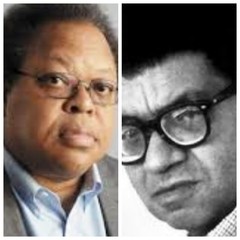|
Back
The Unpredictable State sof America New York
Alice Tully Hall, Lincoln Center
11/23/2019 -
Elliott Carter: Mosaic
George Lewis: Ikons
Morton Feldman: Madame Press Died Last Week At 90
Philip Glass: The Hours: A Suite in Three Movements (Arranged by Michael Riesman)
Adam Phan (Harp), Jaeden Izik-Dzurko (Piano)
AXIOM, Jeffrey Milarsky (Music Director and Conductor)

J. Milarsky
“What was great about the ’50s is that, for one brief moment - maybe, say, six weeks - nobody understood art.”
Morton Feldman (Give My Regards to Eighth Street)
“Art teaches nothing about life, just as life teaches us nothing about art.”
Morton Feldman, ibid
Jeffrey Milarsky gave four incontestable proofs last night that America ain’t as screwed up as we sometimes believe. Their proofs were named Glass, Lewis, Carter and Feldman, and their genius was AXIOMatic.
AXIOM is Mr. Milarsky’s mainly Juilliard student-ensemble, and obviously of a technical standard higher than most symphony orchestras. Especially with music of singular difficulty. So Mr. Milarsky was able to shape them, to form the music into architectural contours, rather than notes played “correctly”.
How did this music, some of it written decades ago, stand up today? No questions could be asked of Philip Glass’ three-movement piano concerto based on his music for The Hours, played with immaculate sensitivity by Jaeden Izik-Dzurko. Then again, this was a chicken-and-egg situation. The 2004 film, with Meryl Streep, Julianne Moore, and Nicole Kidman as Virginia Woolf, was so touching, so compassionate, so tragic, that one cannot think of it without the most breathless memories. (The Michael Cunningham novel was the fundament, but David Hare wrote the screenplay.)
How much did Mr. Glass contribute to its success? This was not a contribution, it was an ineffable part of the entire dramatic poem. Its performance here brought forth the memories for this scribe, and the divisions (listed in the first page of the program) gave hints to the scenes. To those in the audience who hadn’t seen The Hours, perhaps it was simply more Philip Glass. I pity them.
The other soloist in this basic chamber-music concert was harpist Adam Phan in Elliott Carter’s homage to Carlos Salzedo, the French-born harpist and participant in all the French music of the 1930’s, an innovator, composer, and one who made the iconic instrument for every picture of heaven into a simple (ha!) orchestral tool.
This, though was no concerto. Mr. Carter in his last years became a child again. Knowing every musical trick in the book, he used these tricks as pure magic, as charm. His music–like the magic of Penn and Teller–didn’t have to have solutions. The charm was in not knowing the fundamentals, but letting the dialogue and conversation sweep over us.
As for Mr. Phan, he picked up all the Salzedo innovations, those strange pluckings, muted glissandi and percussion, playing them as if he were born to the instrument.
The title Mosaic could have been interchanged with George Lewis’ Ikon. Both were religious art motives (Hebrew and Russian Orthodox), and neither described anything specifically musical.
Secondly, while both works were musical joy, the names could have been interchangeable. Except–and a big except–Mr. Lewis’ work was truncated. Its original incarnation, at the 2010 Vancouver Cultural Olympiad included a moving sculpture, and feedback of the music. The result was probably aleatory, or at least fungible. Here it was naked. But the eight instruments gave a huge spectrum of colors.

G. Lewis/M. Feldman
That was natural, as Mr. Lewis had been highly influenced by the Columbia University Spectralists, and the colors were piercing. Add to that, we had quarter-tones, blaring, mewling, fluttering, and a conscious and unconscious paean to the First American clans (that being the Canadian version of Native American), and the winds, strings, bassoons and trombone (George Lewis’ own first instrument) played a rainbow spectrum.
Finally, we come to Morton Feldman. Or was it Morton Feldman? Madame Press Died Last Week At 90, a quotation of Feldman’s mother about the death of the composer’s first piano teacher, was barely five minutes long–and typical Feldman can saunter along for three or four or five hours. Sensitive, barely moving, notes like clouds, or his beloved Rothko paintings, each phrase a door to a universe floating just a few feet above Feldman’s beloved East Village.
This was a simple piece, the language just on the cusp of bursting out, but never quite hitting the nerve. Starting and ending with a celesta arpeggio, the music was nuanced Russian, with one theme from beginning to end. This was a descending fourth, the sound of a cuckoo (shades of Delius!).
It was sad, I guess, though Feldman would never use such a plaintive word. To those who had never heard the composer before, Jeffrey Milarsky and AXIOM offered a touching, ever-changing bagatelle from a most singular composer.
Harry Rolnick
|